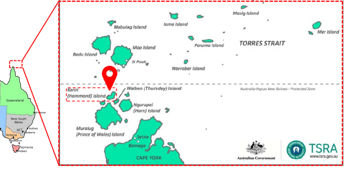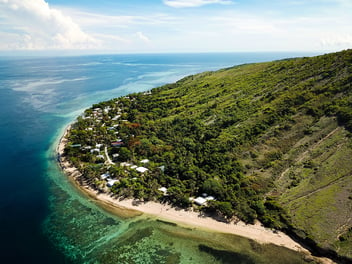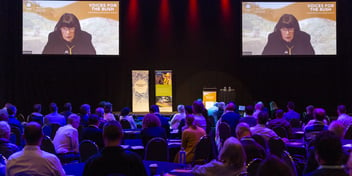Collaboration key to lowering water demand in remote communities
Working alongside remote Indigenous communities to understand their water-use habits can reap significant benefits, in terms of bolstering water security and lowering energy use, with one researcher convinced that collaboration is key.
Presenting at next month’s Australian Water Association NQ Conference on collaborating with remote Aboriginal and Torres Strait Islander communities to improve water security, Griffith University Cities Research Institute Dr Cara Beal said her work with the Remote and Isolated Community Essential Services (RICES) project has helped uncover ways to reduce energy and water consumption.
“The current business as usual approach to delivering water and energy to remote Indigenous communities is very technocratic; rather than working with communities to manage demand, it’s mainly about focusing on infrastructure to secure supply,” Beal said.
“A lot of remote communities up north have expensive water, in terms of its energy requirements. For example, in the Torres Strait Islands, many communities rely on diesel fuel shipped in from thousands of kilometres to run desalination plants that treat seawater to a drinking water standard.
“In the dry season, the demand for water does not always meet the supply from these desalination plants, so the council has to limit access to the mains supply during certain times of the day.
“Some of the communities have access to only nine hours of water a day during the height of the dry season. Turning the water off in this way is obviously not an ideal solution for either the community or the council.”
Beal said her research has involved working with communities, the regional council and other stakeholders in order to understand people’s household water-use habits, which is the first step to reducing water consumption.
“We want to work closely with communities to find out what cultural, social, geographical, and environmental aspects are influencing their high water use behaviours so we can start to co-develop appropriate strategies to change those behaviours term, rather than the current default of turning the water off,” she said.
Beal said that collaboration has been absolutely key to the process, demonstrating the need for more involved and community-oriented water provision management strategies.
“Collaboration is absolutely paramount in these situations. You need to collaborate with all of your stakeholders, for example, the Torres Strait Island Regional Council and our project participants have been great to work with,” she said.
“The council is very on board with the idea of working with us and the community to reduce outdoor water consumption and have started some excellent initiatives around this.
“When we talk about sustainably managing water in remote Indigenous communities, collaboration both with community and across local, state and national agencies ticks a lot of boxes that need to be addressed such as housing, health, energy, water and planning.
“It’s about walking the walk. Collaboration is an easy word to say, but harder to do and we have learnt some great lessons during the RICES project about the dos and don’ts in this respect.”
Beal said the research process used individual water use feedback from smart meters, to discuss with the community some culturally appropriate and feasible ideas as to how they could save more water.
“We showed the community their individual water use data and had two way discussions about water use activities and the value of water in the community. We came up with some interesting insights into why some members of the community were using large amounts of water outdoors,” Beal said.
“We assisted the community in coming up with ideas as to how they could use less water. Early results showed that water could be halved in some cases with good engagement and encouragement around behaviour change.”
Register for the Australian Water Association NQ Conference to hear more from Dr Cara Beal about how collaborating with remote communities creates better water and energy outcomes.
Related podcast:
https://omny.fm/shows/australianwater/dr-nina-hall-on-water-sanitation-and-hygiene



